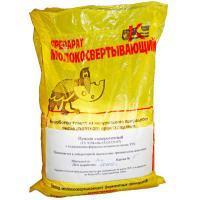Irish poultry exports down 15%
This decline was primarily due to a drop in trade with the UK, which, according to BordBia, is the main market for poultry from Ireland.
BordBia's 2021/2022 results and outlook report showed that Ireland's poultry exports fell by 15% last year to €128 million. This decline was primarily due to a drop in trade with the UK, which is the main market for poultry from Ireland. The value of the poultry trade with the UK fell by 16% last year to €74m, reflecting the sector's high dependence on the UK catering market, which was disrupted during the year.
European poultry MEAT exporters were negatively impacted by market access restrictions last year and progress in rebuilding these trading partnerships will be critical to EXPORT performance recovery. These changes also affected total EU poultry exports, which fell by 5% to 2.2 million tonnes in 2021. Key markets where demand for imports from EU suppliers declined included the Philippines, South Africa, Hong Kong and the UK.
Bord Bia CEO Tara McCarthy warned that new trends are emerging in the market, some of which are long-term changes in consumer behavior and attitudes. “There are a number of challenges facing the Irish food and beverage sector. These include the increase in supply chains and production costs that affect producers and processors, as well as the ongoing impact of Brexit, which has yet to be fully overcome. The UK has not yet started physical checks on imported food and beverages and this should start in early July."
Many companies in the agricultural and manufacturing sectors are reporting a difficult job market, leading to increased costs that are very difficult for producers to recoup from customers.
“Increased focus on sustainability creates both challenges and opportunities for the food sector. Consumers want healthy natural food and Ireland can meet that demand, but we must also work together to reduce our carbon footprint to meet our 2030 commitment.” , and further embed the principles of sustainable development in all activities for the production, manufacture and distribution of products,” she said.
According to an international study by BordBia, 75% of consumers last year made an effort to buy more sustainable food. “The Origin Green program provides Irish exporters with third-party verified data that customers increasingly need. Last year, 71% of Origin Green companies, which are collectively responsible for the vast majority of Irish food and beverage exports, said they believed Origin Green had provided a competitive advantage to their business,” Ms McCarthy added.



























































